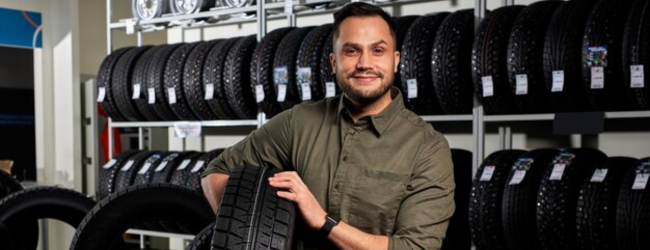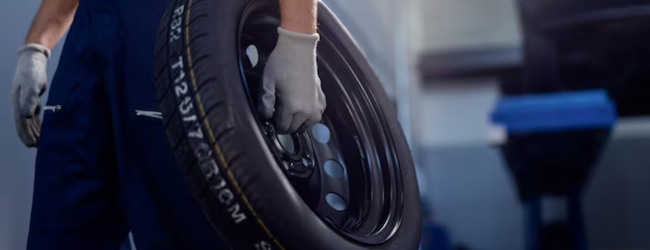Table of contents
The tyre business in India presents a lucrative opportunity, driven by the ever-growing automotive industry. With increasing vehicle ownership and a constant need for tyre replacements, the demand remains robust. If you’re looking to enter this dynamic market, this comprehensive guide will walk you through the essential steps to establish a profitable tyre business.
Why is the Tyre Business Profitable?
- Consistent Demand: Tyres are consumables, requiring periodic replacement due to wear and tear, ensuring a steady customer base.
- Growing Automotive Sector: India’s automotive industry is expanding, boosting the demand for tyres across various vehicle segments.
- Variety of Products: You can cater to diverse customer needs by offering a wide range of tyres for cars, bikes, trucks, and other vehicles.
- Service Opportunities: Tyre businesses can diversify revenue streams by offering services like tyre fitting, wheel alignment, and balancing.
- E-commerce Growth: Online platforms provide a wider reach, allowing you to tap into a larger market.
Step-by-Step Guide to Starting Your Tyre Business

1. Ultra-Precise Market Research and Strategic Planning
- Hyper-Localized Competitor Analysis:
- Create a spreadsheet mapping every tyre business within a 5-10 km radius.
- Categorize them by specialization (e.g., budget-oriented, premium, commercial, mobile).
- Analyze online reviews across Google Maps, Justdial, and social media for each competitor, noting recurring themes (positive and negative).
- Conduct secret shopper visits to gauge customer service, wait times, and sales tactics.
- Document competitor pricing for 10-15 commonly sold tyre sizes and brands.
- Identify their marketing strategies (local ads, online presence, promotions).
- Micro-Segmentation of Target Market:
- Develop detailed customer personas for each segment (e.g., “The Budget-Conscious Commuter,” “The Performance Enthusiast,” “The Fleet Manager”).
- Analyze demographic data (age, income, vehicle type) for your target area.
- Conduct surveys or focus groups to understand customer preferences and pain points.
- Research the growing electric vehicle (EV) market and its specific tyre needs.
- Analyze the growing demand for SUV tyres and the size of the market.
- Comprehensive Business Plan Development:
- Create a 5-year financial projection, including detailed revenue forecasts, expense budgets, and cash flow statements.
- Develop a risk assessment matrix, identifying potential threats and mitigation strategies.
- Outline a detailed operational plan, including inventory management, staffing, and customer service procedures.
- Develop a detailed marketing calendar with specific activities and timelines.
- Create a break-even analysis.
2. Intricate Legal Compliance and Licensing
- GST Mastery:
- Consult with a tax advisor to ensure accurate GST compliance.
- Implement a GST-compliant invoicing and accounting system.
- Stay updated on changes to GST regulations and rates.
- Understand the Input Tax Credit and how to maximize it.
- Hyper-Local Municipal Compliance:
- Visit the local municipal office to understand all applicable regulations and licensing requirements.
- Ensure compliance with building codes, signage regulations, and parking requirements.
- Obtain necessary approvals for any renovations or modifications to your premises.
- Understand the process for renewal of the trade license.
- Environmental Responsibility:
- If handling tyre disposal, establish partnerships with authorized recyclers.
- Implement environmentally friendly practices, such as proper waste disposal and energy-efficient operations.
- Obtain all required permits for the storage of used tyres.
3. Strategic Sourcing and Precision Inventory Control
- Manufacturer Partnerships:
- Negotiate volume discounts and exclusive distribution rights with manufacturers.
- Establish a strong relationship with the manufacturer’s sales representative.
- Attend manufacturer training sessions to stay updated on product knowledge.
- Ask for marketing support from Manufacturers.
- Advanced Inventory Management:
- Implement a barcoding system for accurate inventory tracking.
- Use predictive analytics to forecast demand and optimize stock levels.
- Establish a vendor-managed inventory (VMI) system with key suppliers.
- Implement an alert system for low stock levels.
- Diversification Strategy:
- Explore partnerships with complementary businesses, such as car accessory shops or auto repair services.
- Offer bundled packages, such as tyre replacement with wheel alignment and balancing.
- Add car detailing products, or car perfumes.
💡 Pro Tip: If you want to start a food business but have too many doubts, connect with a food business expert from Boss Wallah for guidance – https://bw1.in/1116
4. Optimized Location and State-of-the-Art Infrastructure

- Data-Driven Location Selection:
- Use traffic analysis tools to assess traffic flow and peak hours.
- Analyze demographic data to identify areas with high vehicle ownership.
- Consider proximity to fleet operators, taxi services, and logistics companies.
- Consider the future development plans of the location.
- Advanced Infrastructure:
- Invest in automated tyre changers and wheel balancers for increased efficiency.
- Install a computerized wheel alignment machine for precise adjustments.
- Set up a dedicated customer service area with digital displays and interactive kiosks.
- Install a modern security system.
5. Detailed Financial Planning and Funding Strategies
- Granular Cost Analysis:
- Create a detailed breakdown of all startup costs, including equipment, inventory, rent, and marketing.
- Develop a sensitivity analysis to assess the impact of changes in key variables, such as sales volume or raw material costs.
- Create a detailed cost of goods sold calculation.
- Funding Diversification:
- Explore government schemes and subsidies for small businesses.
- Consider crowdfunding or angel investment to supplement traditional funding sources.
- Develop a strong business credit profile to access favorable loan terms.
- Create a pitch deck for potential investors.
6. Customer-Centric Marketing and Service Excellence
- Hyper-Targeted Digital Marketing:
- Use advanced targeting options on social media platforms to reach specific customer segments.
- Implement a comprehensive SEO strategy to improve organic search rankings.
- Invest in pay-per-click (PPC) advertising to drive targeted traffic to your website.
- Use remarketing campaigns to recapture website visitors.
- CRM and Loyalty Programs:
- Implement a CRM system with advanced features, such as customer segmentation and automated marketing campaigns.
- Develop a tiered loyalty program with exclusive rewards and benefits for repeat customers.
- Implement a customer feedback system with online surveys and review platforms.
- Use SMS marketing for quick customer communication.
- Premium Service Offerings:
- Offer mobile tyre fitting and repair services for added convenience.
- Provide a valet service for customers who need to drop off their vehicles.
- Offer extended warranties and roadside assistance packages.
- Provide training to the staff for excellent customer support
Detailed Setup Cost Breakdown for a Tyre Business

The setup cost for a tyre business can vary significantly based on location, scale, and the range of services offered. Here’s a more detailed breakdown:
- Premises (Rental/Purchase):
- Rental:
- Small shop (500-1000 sq. ft.): ₹30,000 – ₹1,00,000 per month (depending on the location and city).
- Advance deposit: 3-6 months’ rent (₹90,000 – ₹6,00,000).
- Purchase:
- Commercial property in a good location: ₹20,00,000 – ₹1,00,00,000+ (highly variable).
- Rental:
- Inventory (Initial Stock):
- Tyres (various sizes and brands): ₹5,00,000 – ₹15,00,000.
- Alloy wheels, batteries, accessories: ₹1,00,000 – ₹3,00,000.
- Equipment:
- Tyre changer (automatic): ₹1,00,000 – ₹3,00,000.
- Wheel balancer (computerized): ₹50,000 – ₹2,00,000.
- Wheel alignment machine (3D): ₹2,00,000 – ₹5,00,000.
- Air compressor: ₹20,000 – ₹70,000.
- Hydraulic jacks, tools, and consumables: ₹50,000 – ₹1,50,000.
- Computer and POS system: ₹50,000- ₹1,00,000
- Licenses and Permits:
- Business registration (sole proprietorship, partnership, etc.): ₹10,000 – ₹25,000.
- GST registration: ₹5,000 – ₹10,000.
- Local trade license: ₹5,000 – ₹15,000.
- Pollution control clearances(If required): ₹10,000- ₹30,000
- Interior and Infrastructure:
- Shop renovation and setup: ₹1,00,000 – ₹3,00,000.
- Signage and branding: ₹50,000 – ₹1,50,000.
- Furniture and customer waiting area: ₹50,000 – ₹1,00,000.
- Security system(CCTV): ₹30,000 – ₹70,000
- Marketing and Advertising:
- Initial marketing campaign (local ads, online presence): ₹50,000 – ₹2,00,000.
- Website development and SEO: ₹30,000 – ₹1,00,000.
- Working Capital:
- Operational expenses for the first 3-6 months: ₹2,00,000 – ₹5,00,000.
Total Estimated Setup Cost: ₹10,00,000 – ₹35,00,000+ (depending on the variables mentioned).
Tyre Business Ideas

1. Mobile Tyre Fitting and Repair Service
- Business Plan:
- Target Market: Busy individuals, fleet operators, roadside assistance needs.
- Services: On-site tyre fitting, puncture repairs, wheel balancing, and emergency roadside assistance.
- Equipment: Mobile van, tyre changer, wheel balancer, air compressor, and tools.
- Marketing: Online advertising, partnerships with fleet companies, roadside assistance apps.
- Key Differentiator: Convenience and speed.
- Setup Cost: ₹5,00,000 – ₹15,00,000 (including a well-equipped van).
ALSO READ | 10 Best Manufacturing Businesses with 1 Crore: High-Return Opportunities
2. Specialized Tyre Retreading for Commercial Vehicles
- Business Plan:
- Target Market: Trucking companies, bus operators, logistics firms.
- Services: Tyre retreading, casing inspection, and fleet tyre management.
- Equipment: Retreading machinery, casing inspection equipment, quality control tools.
- Marketing: Direct sales to fleet operators, industry trade shows.
- Key Differentiator: Cost-effectiveness and sustainability.
- Setup Cost: ₹15,00,000 – ₹30,00,000+ (due to specialized equipment).
3. Online Tyre Retail and Delivery
- Business Plan:
- Target Market: Online shoppers, tech-savvy customers.
- Services: Online tyre sales, home delivery, and installation partnerships.
- Platform: E-commerce website, mobile app.
- Marketing: Digital marketing, SEO, social media, and online marketplaces.
- Key Differentiator: Convenience, competitive pricing, and wide selection.
- Setup Cost: ₹8,00,000 – ₹20,00,000 (including website development and inventory).
4. Performance Tyre and Tuning Centre
- Business Plan:
- Target Market: Sports car enthusiasts, performance vehicle owners.
- Services: High-performance tyre sales, wheel alignment, suspension tuning, and performance upgrades.
- Equipment: Advanced wheel alignment machines, suspension tuning tools, and diagnostic equipment.
- Marketing: Online forums, car enthusiast events, and partnerships with performance part suppliers.
- Key Differentiator: Specialization and expertise.
- Setup Cost: ₹12,00,000 – ₹25,00,000 (due to specialized equipment and inventory).
ALSO READ | 10 Highly Profitable Manufacturing Business Ideas Under ₹50,000
5. Tyre Recycling and Disposal Centre
- Business Plan:
- Target Market: Tyre retailers, automotive workshops, and local municipalities.
- Services: Tyre collection, recycling, and disposal in compliance with environmental regulations.
- Equipment: Shredding machines, granulators, and transportation vehicles.
- Marketing: Partnerships with tyre retailers, workshops, and local government.
- Key Differentiator: Environmental responsibility and compliance.
- Setup Cost: ₹10,00,000 – ₹20,00,000+ (due to specialized machinery and compliance costs).
Need Expert Guidance?
Starting a business can be challenging, but you don’t have to do it alone! At Boss Wallah, our 2,000+ business experts are ready to provide valuable insights and guidance. Whether you need help with marketing, finance, sourcing, or any other area of any business, our business experts are here to help you succeed- https://bw1.in/1116
Confused about Which Business to Start?
Want to start your own business but unsure which one to choose? Explore Boss Wallah, where you’ll find 500+ courses by successful business owners, featuring practical, step-by-step guides on starting and growing various businesses.
Find your perfect business idea today – https://bw1.in/1111
Conclusion
Starting a profitable tyre business requires careful planning, market research, and a strong focus on customer service. By understanding the market dynamics, managing your finances effectively, and providing high-quality products and services, you can establish a successful and sustainable business.
Frequently Asked Questions (FAQs)
1. What is the profit margin in the tyre business?
Profit margins can vary, but typically range from 15% to 30%, depending on the products and services offered.
2. How much investment is required to start a tyre business?
The initial investment can range from ₹6,80,000 to ₹26,50,000, depending on the scale and location.
3. What are the essential licenses required for a tyre business?
Business registration, GST registration, and local trade licenses.
4. Where can I source tyres for my business?
You can source tyres from manufacturers, distributors, and wholesalers.
5. How can I attract customers to my tyre business?
Offer competitive pricing, excellent customer service, and effective marketing strategies.
6. What are the key factors for success in the tyre business?
Quality products, competitive pricing, excellent customer service, and effective marketing.
7. Is online tyre sale profitable?
Yes, online tyre sales are very profitable as they expand your customer reach.
8. What are the best tyre brands to sell in India?
Popular brands include MRF, Apollo, CEAT, Bridgestone, and Michelin.



